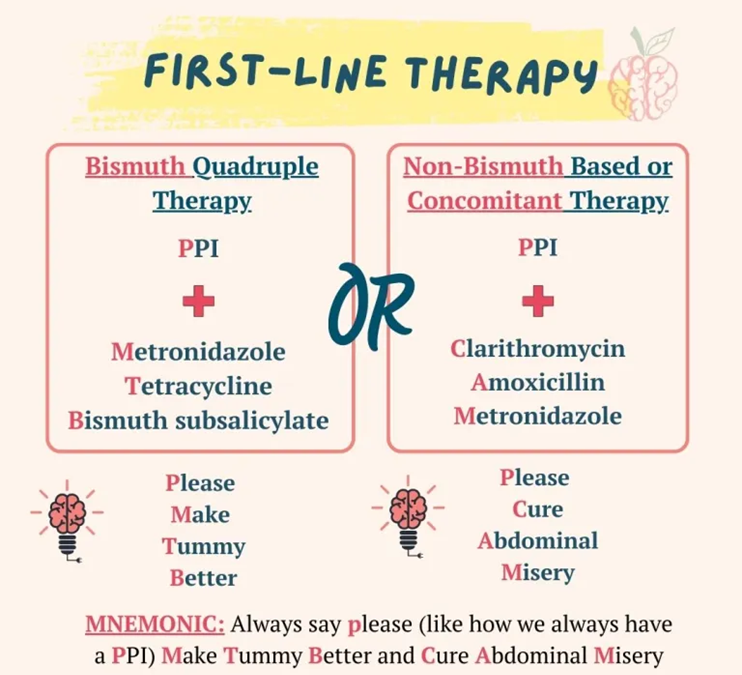A patient who recently began having mild symptoms of GERD is reluctant to take medication. What measures will the nurse recommend to minimize this patient's symptoms? (Select all that apply.)
Avoiding hot, spicy foods
Avoiding tobacco products
Drinking a glass of red wine with dinner
Eating a snack before bedtime
Using a small pillow for sleeping
Correct Answer : A,B,E
A. Avoiding hot, spicy foods
Spicy foods can increase the production of stomach acid and may irritate the esophagus, worsening GERD symptoms. Avoiding hot and spicy foods is a dietary measure to minimize the risk of symptom exacerbation.
B. Avoiding tobacco products
Tobacco use is a known risk factor for GERD. Smoking can relax the lower esophageal sphincter (LES), allowing stomach acid to flow back into the esophagus. Advising the patient to quit or avoid tobacco products can contribute to symptom management.
C. Drinking a glass of red wine with dinner
While red wine may have some potential benefits, alcohol, in general, can relax the LES, leading to increased reflux. Therefore, drinking red wine with dinner may not be recommended for someone experiencing GERD symptoms.
D. Eating a snack before bedtime
Eating close to bedtime can increase the likelihood of GERD symptoms, as lying down may allow stomach acid to flow back into the esophagus. The nurse may advise against eating a snack right before bedtime to minimize nighttime reflux.
E. Using a small pillow for sleeping
Elevating the head and upper body during sleep can help prevent stomach acid from flowing into the esophagus. Using a small pillow for sleeping is a measure to reduce nighttime reflux and alleviate GERD symptoms.
Nursing Test Bank
Naxlex Comprehensive Predictor Exams
Related Questions
Correct Answer is A
Explanation
A. Misoprostol (Cytotec)
The patient complaining of gastric distress from NSAIDs (Nonsteroidal Anti-Inflammatory Drugs) like aspirin or indomethacin may benefit from the administration of misoprostol (Cytotec). Misoprostol is a prostaglandin analog that helps protect the stomach lining and reduce the risk of NSAID-induced gastric ulcers.
B. Lansoprazole (Prevacid)
Lansoprazole is a proton pump inhibitor (PPI) that reduces stomach acid production. While PPIs can be used for certain acid-related conditions, they do not directly protect against NSAID-induced gastric distress.
C. Magaldrate (Riopan)
Magaldrate is an antacid that neutralizes stomach acid. It may provide relief from symptoms of indigestion but does not specifically address the gastric distress caused by NSAIDs.
D. Magnesium trisilicate (Gaviscon)
Magnesium trisilicate is an antacid that helps neutralize stomach acid. Like magaldrate, it may alleviate symptoms of indigestion but does not target the underlying issue of NSAID-induced gastric distress.
Correct Answer is C
Explanation
A. Antacids and narcotics.
Antacids can provide temporary relief of symptoms, but they do not treat the underlying H. pylori infection. Narcotics are not typically used as a standard treatment for peptic ulcer disease related to H. pylori.
B. Pepsin inhibitors and antiemetics.
Pepsin inhibitors and antiemetics may address symptoms but do not target the H. pylori infection directly. The standard treatment involves antibiotics to eradicate the bacteria and proton pump inhibitors to reduce acid production.
C. Proton pump inhibitors and antibiotics.
A positive breath test for H. pylori indicates the presence of Helicobacter pylori bacteria, which is associated with peptic ulcer disease. The standard treatment for H. pylori infection involves a combination of proton pump inhibitors (to reduce stomach acid production) and antibiotics (to eradicate the bacteria).
D. Emetic agents and tranquilizers.
Emetic agents are used to induce vomiting and are not indicated for the treatment of H. pylori infection. Tranquilizers are not part of the standard treatment for peptic ulcer disease associated with H. pylori.

Whether you are a student looking to ace your exams or a practicing nurse seeking to enhance your expertise , our nursing education contents will empower you with the confidence and competence to make a difference in the lives of patients and become a respected leader in the healthcare field.
Visit Naxlex, invest in your future and unlock endless possibilities with our unparalleled nursing education contents today
Report Wrong Answer on the Current Question
Do you disagree with the answer? If yes, what is your expected answer? Explain.
Kindly be descriptive with the issue you are facing.
